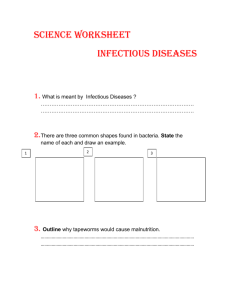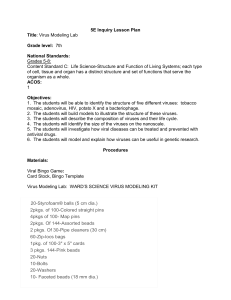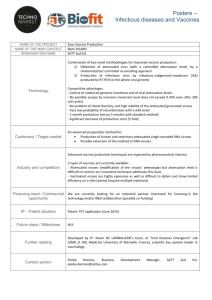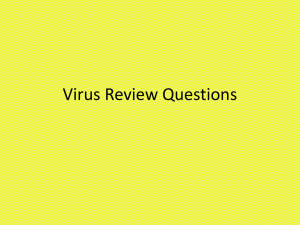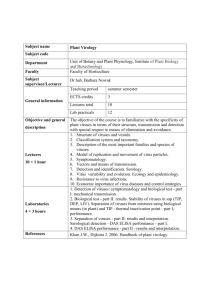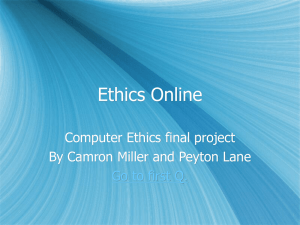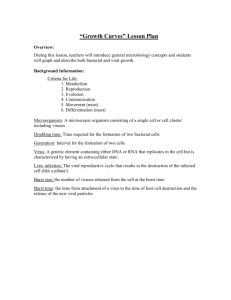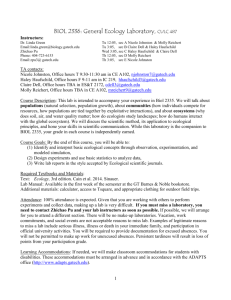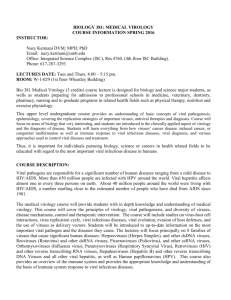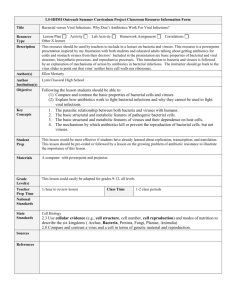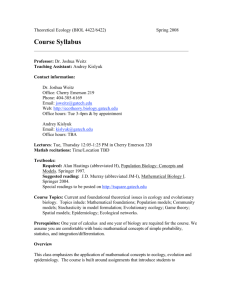Course Syllabus - Weitz Group @ Georgia Tech
advertisement
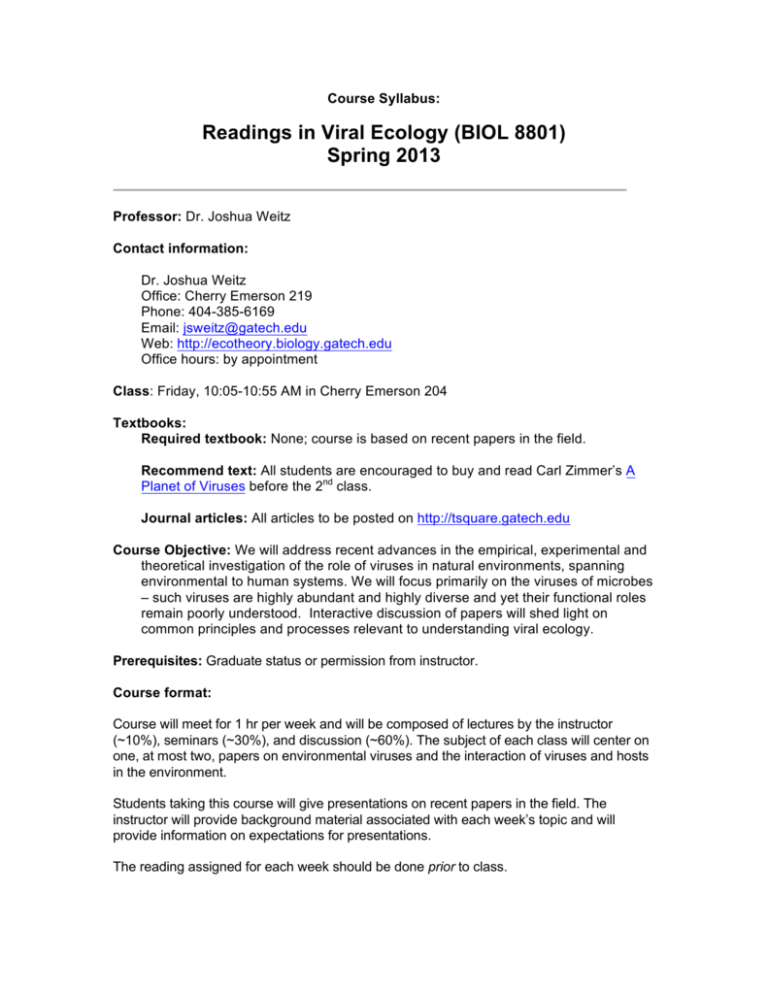
Course Syllabus: Readings in Viral Ecology (BIOL 8801) Spring 2013 Professor: Dr. Joshua Weitz Contact information: Dr. Joshua Weitz Office: Cherry Emerson 219 Phone: 404-385-6169 Email: jsweitz@gatech.edu Web: http://ecotheory.biology.gatech.edu Office hours: by appointment Class: Friday, 10:05-10:55 AM in Cherry Emerson 204 Textbooks: Required textbook: None; course is based on recent papers in the field. Recommend text: All students are encouraged to buy and read Carl Zimmer’s A Planet of Viruses before the 2nd class. Journal articles: All articles to be posted on http://tsquare.gatech.edu Course Objective: We will address recent advances in the empirical, experimental and theoretical investigation of the role of viruses in natural environments, spanning environmental to human systems. We will focus primarily on the viruses of microbes – such viruses are highly abundant and highly diverse and yet their functional roles remain poorly understood. Interactive discussion of papers will shed light on common principles and processes relevant to understanding viral ecology. Prerequisites: Graduate status or permission from instructor. Course format: Course will meet for 1 hr per week and will be composed of lectures by the instructor (~10%), seminars (~30%), and discussion (~60%). The subject of each class will center on one, at most two, papers on environmental viruses and the interaction of viruses and hosts in the environment. Students taking this course will give presentations on recent papers in the field. The instructor will provide background material associated with each week’s topic and will provide information on expectations for presentations. The reading assigned for each week should be done prior to class. Grading Scheme: 50% presentations • Each student presentation will be evaluated by the instructor and by all students in the class. The instructor grade will represent 2/3 of the presentation grade and the averaged peer evaluations will represent 1/3 of the presentation grade. 40% in-class participation in discussions 10% online participation in discussions – using Tsquare Attendance: Regular attendance in class is expected. Exceptions will be accepted for valid, documented reasons only, including: (1) official representation of the Institute; and (2) medical emergencies. Academic Integrity: Students are reminded of the obligations and expectations associated with the Georgia Tech Academic Honor Code and Student Code of Conduct, available online at: http://www.deanofstudents.gatech.edu/integrity/policies/honor_code.php http://www.deanofstudents.gatech.edu/codeofconduct. Any violations must be reported to directly to the Dean of Students. Additional Resources: • Tsquare — http://tsquare.gatech.edu • Tech Tutoring — http://www.undergradstudies.gatech.edu/supportTutoring.htm Updates: This syllabus is subject to modification. Any changes will be announced in class and posted on the course website. Week Jan 11 Jan 18 Jan 25 Feb 1 Feb 8 Feb 15 Feb 22 Mar 1 Mar 8 Mar 15 Mar 22 Mar 29 Apr 5 Apr 12 Apr 19 Apr 26 Theme Introduction Who is there? .. .. What are viruses doing to their hosts? .. What are the systemlevel consequences .. .. No class Viral theory .. .. Cross-systems perspectives .. Topic Intro to Viral Ecology A Global View Counting viruses Viral diversity Viral life history traits Class format Lecture (Weitz) Discussion Discussion Presentation Presentation Intracellular dynamics Viruses of viruses Cross-infection: new experimental methods Microbial community structure Biogeochemical cycles No class Cross-infection networks Population dynamics Evolutionary dynamics Viruses of humans vs. viruses in humans The future of viral ecology Presentation Discussion Presentation Presentation Presentation Spring break Discussion Discussion Discussion Discussion Presentation
